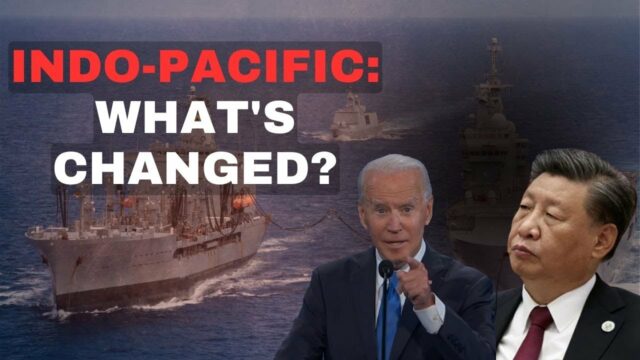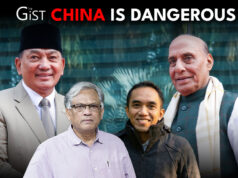New partnerships are being stitched together in the Indo-Pacific, an area that’s been a geopolitical battleground of sorts, of late. The West, its allies and partners have been opposing Chinese belligerence and the latter has also pointed fingers at what it calls American interference.
Now Italy has decided to scale up its presence in the Indo-Pacific as Prime Minister Giorgia Meloni said during her trip to Tokyo this week. So there will be more joint military exercises, also involving fighter jets and aircraft carriers.
Other players who have set their sights on the region include the UK and Australia.
The region has undergone a change though some factors remain as they were in the 1950s, says former Indian Foreign Secretary Vijay Gokhale.
China has got stronger, the US has lost some of its dominance, India has gained heft and the UK is not quite in the scene.
But some of the friction points, such as Korea, Taiwan and the South China Sea remain, he said. Also, China and the United States are on the path of confrontation but not “conflict”.
Vijay Gokhale is of the opinion that the United States will not have the capability to police both the Indian and the Pacific oceans, so it may focus on the Pacific Ocean and delegate some of its tasks in the Indian Ocean to AUKUS, which would bring the UK into the picture.
Gokhale argues that the UK and the US saw China through entirely different prisms in the 1950s. While the US focus was to stop communism, the UK wanted to preserve its colonies and maintain trade links. And the latter prevailed upon India when it came to deciding foreign policy issues, such as recognizing the People’s Republic of China.
So what should guide India’s Indo-Pacific approach? Gokhale feels India must talk directly to the Americans and with the Chinese but must not let a third party, particularly the UK, come in between.
At six feet and over, cool, calm and always collected. Never a hair out of place. He is the high priest of editorial facts, grammar is his baby and headlines are meat on the bone. Loves samosas and cricket, tracks Twitter and when in his cups, nothing better than Jagjit Singh’s ghazals.





